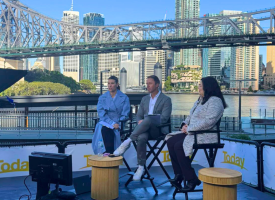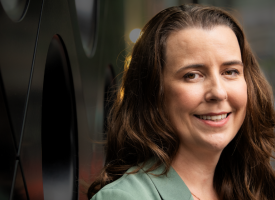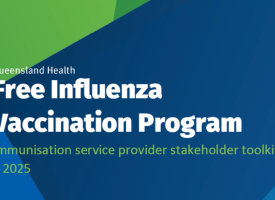Transcript - Dr Chris Moy on ALP Primary Care commitment, COVID-19 infections & medicine security
Transcript: AMA Vice President, Dr Chris Moy, on ABC News Radio with Chris Mitchell. Sunday, 15 May 2022 Subject: ALP’s Primary Care commitment, COVID-19 cases, medicine shortages and medicine security.
HOST: CHRIS MITCHELL: The Labor Party of course has been out and about as much as anyone, announcing different plans, including yesterday outlining its plans for healthcare. Opposition leader Anthony Albanese promising almost a billion dollars for Medicare and GPs if it wins next weekend. The pledge consists of $750 million over three years for a new so-called Strengthening Medicare fund, which aims to improve patient access to GPs, including after hours, decrease pressure on hospitals, and better manage complex and chronic conditions. It also includes some money for grants for GPs to train staff, upgrade IT, telehealth systems, buy equipment and even improve ventilation and infection control in these pandemic times.
Well, Dr Chris Moy is vice-president of the Australian Medical Association. It hasn’t been that impressed with some of the offerings on the health front this campaign. Let’s see what he makes of this one. Dr Moy, good morning to you.
DR CHRIS MOY: Good morning.
CHRIS MITCHELL: What did you make of these latest Labor pledges on Medicare and the grants for GPs?
DR CHRIS MOY: Yeah, you’re right, we’re pretty hard markers. But look, we applaud this as being the first really significant commitment by any party to try to address the major structural issues in our health system, and in this case the primary health or general practice system, which has been run down from many, many years of freezes and lack of indexation of the rebate, but also been hammered through this COVID pandemic. So, this is actually the first thing trying to address the running down of the system and, ironically, it’s the funding primarily to implement a plan from the government’s own making, which is called the ten-year Primary Healthcare Plan, which the government - in fact, and I was part of this committee - asked us to develop the plan for the future of general practice and said they would fund it. In fact, they had $450 million on the table from a previous budget for this, and then at the end of this they strung us along and betrayed us by not actually following through. So the irony is that this is actually the ALP funding the LNP’s own plan which they failed to fund.
CHRIS MITCHELL: It’s an interesting time politically, indeed, you’re right. Your president Omar Khorshid said GPs feel betrayed by the Federal Government. But you’d also suggested that neither party had won the approval of the AMA during this campaign. Is that still the case?
DR CHRIS MOY: Well, this is the first tick. This is actually the first blow at trying to fix a major problem. Now, Labor have always said that they’re the friend of Medicare. We hadn’t seen that until this moment and this is actually the first tick.
Look, this is not the be all and end all, but it fixes a major structural problem in the health system for, firstly, people that have had trouble accessing medical care. But also, I think, more than that. I think getting past this really banal debate just about bulk billing rates. The health system, unfortunately, has changed over time and become less fit for what it needs to be. It’s been based on this Medicare rebate, which is really created for simple problems: people coming in with a broken finger or small single problem. But the world has changed.
We have far more aged care now, we have far more people with chronic diseases like diabetes or heart disease. What we need is practices that favour people that, first up, have these chronic diseases, are less mobile, need a different type of care that’s more ongoing, and they need a medical home. That is the main part of this: not only to add funding to general practice, but to actually shift to practices that are willing to provide this value-added care for this population. And this is linked to a thing called voluntary patient enrolment, which is basically: patients will vote with their feet for practices that actually are willing to do this and willing to go the extra mile and the funding will, over time, start to head towards them rather than practices that are, unfortunately, heading towards the point where, because of the unit-cost nature of the Medicare rebate, they’re going to this six-minute type medicine, and this is not helpful for the sort of conditions that people are developing over time.
CHRIS MITCHELL: So apart from this $750 million Strengthening Medicare Fund, the Labor Party’s also pledging to create a new task force to prioritise improvements to national healthcare if they are elected. Are you and the AMA happy to serve on that task force?
DR CHRIS MOY: Yeah, very much so. This is actually just how we’re going to allocate it. So the sort of things that the allocation will be, which again is in the 10 year plan from the government’s own development, is essentially things like allocating this to extra, say, nurses, practice nurses, extra access to aged care, allocating it to after-hours services, so practices open longer. Directing it to practices that are, for example, willing to do home visits. Those sorts of things, which are the sort of things which have gone by the by, unfortunately, and have actually reduced access for patients over time, but particularly those patients with these chronic diseases which, I think, are feeling left out, stuck at home with the way that the general practice system has developed over time.
CHRIS MITCHELL: Also promising a bit of money, as I said, to improve ventilation and infection control. That’s no doubt inspired by activities around the last couple of years and COVID, which hasn’t really been mentioned that much in the campaign, given how prominent it’s been for the last few years. But still, 320 deaths in the last seven days alone here. How worried are you at where things stand?
DR CHRIS MOY: I think, unfortunately, during this election campaign and also because, I think, just fatigue, there is a level of complacency out there. We must not lose the fact that we’re in fact the first or second highest rate of infections in the world for countries over all at the moment, and we have this ongoing rate of deaths.
COVID is not the cold, it’s not influenza, it’s a multi-system disorder which people are catching in a recurrent manner, and what we really do need, I think, past the silliness of this election, we do need to refocus. Because this is adding an extra layer of healthcare needs, which is beyond what we’ve had in the past. So normally, this time of year, we’re looking after all the people with heart attacks and cancers, those people with flu. From now on, it looks like, we’re going to be looking after people who are getting COVID and ending up in hospital or, also, having Long COVID, which is, I think, something as a community we haven’t acknowledged. Because there are several hundred thousand people with Long COVID at any given time in Australia at the moment.
CHRIS MITCHELL: Perhaps some of the major parties are a bit worried if they mention COVID they might be attacked as wanting to destroy freedom and reinstate lockdown. It’s certainly got some political currency in some of the minor parties in this campaign. While I’ve got you, doctor, COVID not the only problem, of course. You’re a bit concerned about the supply of essential medical goods. Are Australian lives potentially at risk because of medicine shortages here?
DR CHRIS MOY: Well, at the moment the biggest concern is the lack of intravenous contrast, which is something that’s used for certain scans that are done, and some of these are essential. That’s because the main place where this is made is Shanghai, which is in lockdown. I think the issue of medications, medical supplies, was something we hadn’t looked at in a totally free market world where everybody seemed to get along, but I think the world has changed a lot, and we do need to start to reconfigure this now. The AMA have a position now that we do need to be looking at, particularly, medication manufacturing in Australia. We might have actually made- allowed us to develop an MRNA vaccine more quickly, which is one thing to keep in mind. But I think the thing is that we do need greater security of medications, of essential medications, not only of medications that people take every day, but hospital medications, which became a real problem during the COVID-19 pandemic. But also, things like this which are critical for the functioning of the health system. And I think the manufacturing and securing of supply chains across the world is really a priority now with the very uncertain world that we live in.
CHRIS MITCHELL: Well, this time next week we may know who is in government and who the Health Minister will be and who you’ll be dealing with in the years to come perhaps. Dr Chris Moy, thanks for joining us today.
DR CHRIS MOY: It’s a pleasure.
CHRIS MITCHELL: Vice-president of the Australian Medical Association there.



